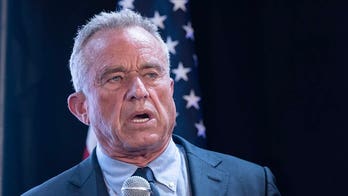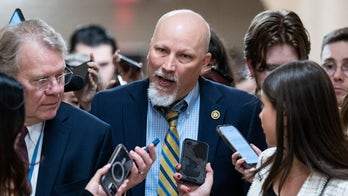Commerce Secretary Gina Raimondo has rejected accusations that Vice President Kamala Harris has avoided engagement with the press, arguing that Harris has been "crystal clear" about her values and has spent her time connecting with Americans. Raimondo's comments come in response to CNBC host Joe Kernen's criticisms that Harris has been difficult to "pin down" and has only granted one formal interview in over a month.
During an interview with CNBC's "Squawk Box" on Monday, Commerce Secretary Gina Raimondo dismissed the notion that Vice President Kamala Harris has avoided the press. In response to CNBC host Joe Kernen's accusations, Raimondo asserted that Harris has been "crystal clear" on her values and has spent her time engaging directly with Americans.

Harris Surrogate Disputes Claims of Lack of Press Access, Defends Vice President's Engagement with Americans
Kernen had criticized Harris, claiming that she has avoided the press and that her lack of access has left the American people frustrated. He pointed out that Harris has only granted one formal interview in over a month, and that the interview was taped and selectively edited.
"Maybe it's been made clear in drubs and drabs from her policymakers when it comes out in print or off a teleprompter at one of her scripted speeches. She’s been impossible to pin down on anything because she hasn’t given any access. The American people deserve it. Wouldn’t you agree?" Kernen asserted.

Harris Surrogate Disputes Claims of Lack of Press Access, Defends Vice President's Engagement with Americans
However, Raimondo strongly disagreed with Kernen's assessment, stating that Harris has been clear about her desire to help businesses and small businesses and that she has been "pro-business, pro-worker at the same time."
"This is a presidential election like no other. She only has a few weeks to do everything. And she’s spending her time talking to Americans. She has a punishing schedule out and about everywhere being with the people who she wants to elect her," Raimondo explained.

Harris Surrogate Disputes Claims of Lack of Press Access, Defends Vice President's Engagement with Americans
Raimondo further emphasized that the debate between Harris and Trump on Tuesday would be "robust," highlighting Harris's vision and clear articulation of her policies.
Despite Kernen's criticisms, Harris has engaged in a variety of media interactions, including taped interviews with CNN, Uforia, and the "Rickey Smiley Show." The Uforia interview aired on Friday, while the Smiley interview was delayed due to technical difficulties.
Harris's campaign strategy has focused on direct engagement with voters through rallies, speeches, and town halls. She has prioritized connecting with voters on a personal level and conveying her message directly rather than relying solely on traditional media interviews.
In contrast to Harris, former President Trump and his running mate, Ohio Sen. JD Vance, have granted at least 39 interviews since the Harris-Walz ticket was formed. This suggests a more traditional approach to media engagement, with a higher frequency of interviews and a focus on reaching a wider audience.
Commerce Secretary Gina Raimondo's defense of Vice President Kamala Harris's press engagement highlights the different approaches adopted by the two campaigns in terms of media strategy. While CNBC host Joe Kernen has criticized Harris for her limited formal interviews, Raimondo has emphasized Harris's focus on direct engagement with voters and her clear articulation of her values and policies. The debate between Harris and Trump on Tuesday will provide an opportunity for voters to assess their respective media strategies and policy positions.










